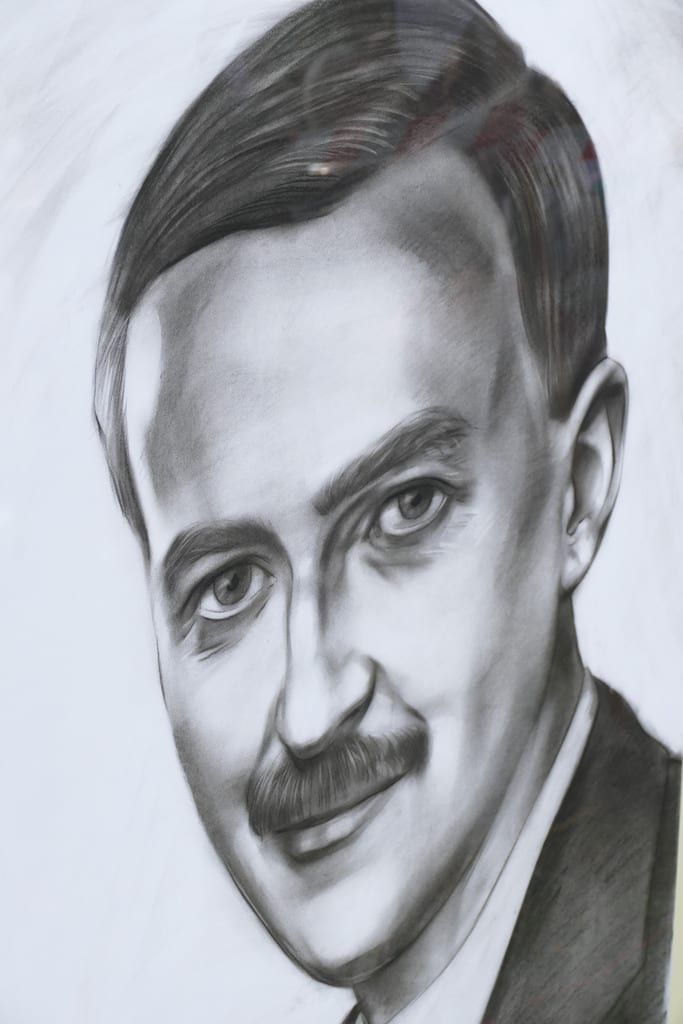Found after 60 years, the ashes of János Esterházy, a man who helped Poles during World War II, were laid to rest in a chapel in his hometown of Dolní Obdokovec. The funeral rites were presided over by Archbishop Marek Jędraszewski, Metropolitan of Krakow.
- The totalitarian systems denied the right to a grave to noble and great people, and this also applied to János Esterházy," said Archbishop Marek Jędraszewski during the ceremony in the Chapel of the Elevation of the Holy Cross. - The ashes of this hero of Hungary, Poland and Slovakia finally find his grave as an expression of our remembrance of him but also as a place which becomes for all of us a great obligation of solidarity, remembrance, faith, forgiveness and reconciliation.
- János Esterházy felt that he was a democrat, a Christian and a man from this part of Central and Eastern Europe. In those days, any of these reasons was enough to be imprisoned or even deprived of life," the Archbishop pointed out.
The Metropolitan of Krakow recalled the figure of a politician who was a symbol of the common Polish-Hungarian history and tradition. János Esterházy, taking advantage of his acquaintanceship and family connections - he was the son of a Hungarian aristocrat and Elżbieta, daughter of Count Stanisław Tarnowski - helped Poles who were crossing Slovakia to go west through Hungary and Romania, where the Polish Army was being formed.
He was the only member of the parliament of the First Slovak Republic to oppose the deportation of Slovak Jews to death camps in 1942. After the end of the war, in 1945, he was imprisoned by the communist services of Slovakia and handed over to the NKVD. His death sentence was changed to work in the gulags, where he met Poles, soldiers of the Vilnius district of the Home Army. - Wherever he found himself, he strengthened people in faith, Christian hope, drawing their spiritual strength from the Cross of Christ," said the hierarchy. - He spent the last years of his life in a hard prison near Ostrava and died there in the reputation of holiness. He was a tireless follower of the Cross of Christ. He died in 1957, but his memory was forbidden to Hungarians, Slovaks, Czechs and Poles.
- Only now has this memory been revived, and today's ceremony united the bishops of Hungary, Slovakia and Poland, as well as a high representative of the Czech Episcopal Conference. In the person of Esterhaze we have a man who unites us, who unites the nations in this part of Europe in professing the same faith, in drawing strength from the Cross of Christ, who teaches unity beyond differences, who shows that the true home for all is Christ's Church,' Archbishop Marek Jędraszewski stressed, that faith in Christ's Gospel is the only foundation that can unite Europe and save Europe in the era when the Gospel, the Cross and those who created the foundations of Christian Europe and its unity must be forgotten at all costs.
"Throughout his life he remained faithful to the principles of Christian Europe and steadfastly, despite total danger, stood up for the persecuted. Nowadays he becomes a symbol of courage and prudence. (...) Just as he was needed by his contemporaries to call a spade a spade and to warn against crazy, insane ideologies, so he is needed by us today so that we do not lose our identity and can refer to his unique message," wrote Jarosław Szarek, the President of the Institute of National Remembrance, in a letter addressed to the participants of the ceremony.
For helping Polish refugees during World War II, János Esterházy was posthumously awarded the Commander's Cross of the Order of Polonia Restituta by President Lech Kaczyński in 2009.
source: Archdiocese of Cracow



